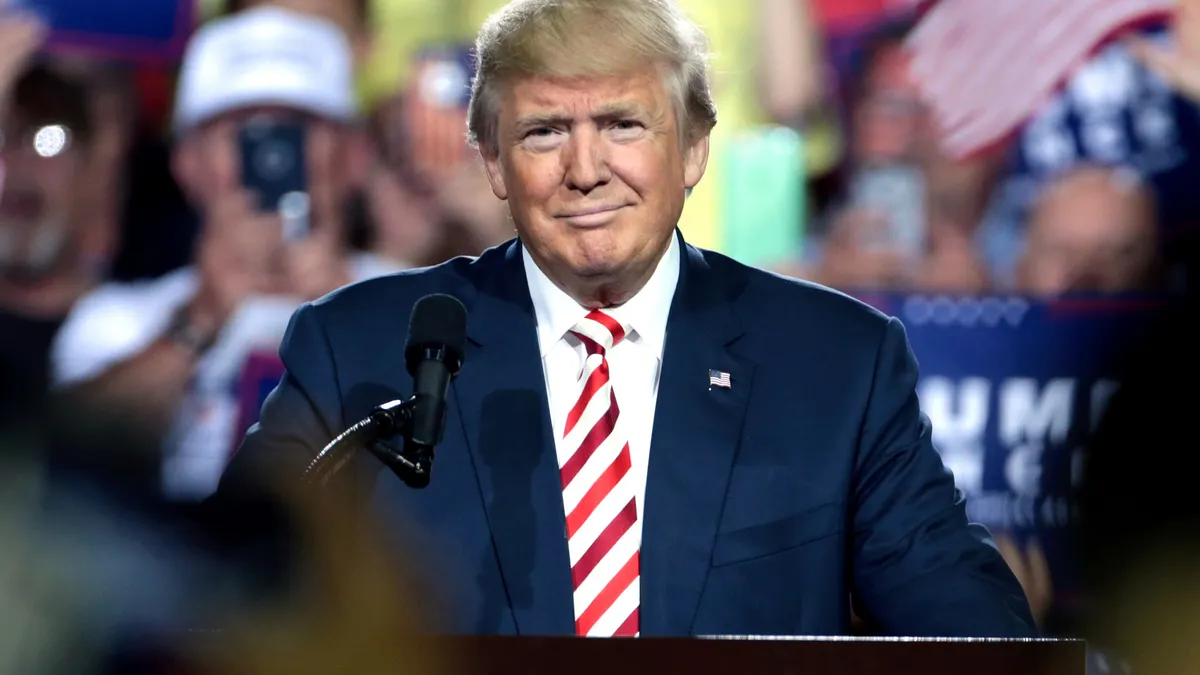Dive Brief:
- The U.S. Environmental Protection Agency has moved to delay implementation of 30 new regulations already published in the Federal Register, a move the Trump administration says is necessary to give new leadership a chance to review them.
- As The Hill notes, the highest-profile of the delayed regulations include renewable fuel standards for 2017 and the biomass-based diesel volume for 2018.
- The news points to continued changes by the incoming administration, which has vowed to eliminate regulations it sees as too costly. Earlier this week the administration temporarily froze grants and contracts at the EPA and has restricted communications from the agency.
Dive Insight:
The first full week of the new Trump administration has seen a whirlwind of activity at agencies, perhaps most controversially the EPA. Trump's pick to lead the agency, Oklahoma Attorney General Scott Pruitt (R), has been a frequent critic of the agency, and previously filed over a dozen lawsuits against the agency during President Obama's terms.
The newest revelations mean delays for already-published regulations, including air quality plans, changes to the agency's hazard ranking system, and emission standards for wood producers.
Also delayed are the EPA's new standards for renewable fuels, including cellulosic biofuel, biomass-based diesel, advanced biofuel, and total renewable fuels.
The White House has also directed federal agencies to cease finalization of new regulations until the incoming administration is fully in place. That decision is similar to past administrative actions, but also creates uncertainty for four efficiency regulations finalized in the waning days of the Obama administration.
Prutt, in his confirmation hearings, outlined changes to how the agency would operate but said the EPA still has a vital role. He affirmed the agency’s authority to regulate many pollutants that were the subject of his court challenges, and said the current interpretation of the Clean Air Act requires the agency to do something about CO2 pollution.
Just what those potential GHG rules could look like will likely depend on how the incoming EPA team views mainstream climate science.
All agency information on climate change is currently being scrutinized by Trump political appointees as part of the agency review, with a spokesperson promising any changes will be "science-based." Pruitt and Trump's other political appointees, however, have refused to acknowledge the mainstream consensus on climate change, which holds that humans are the overwhelming cause of warming since the mid-20th century.















